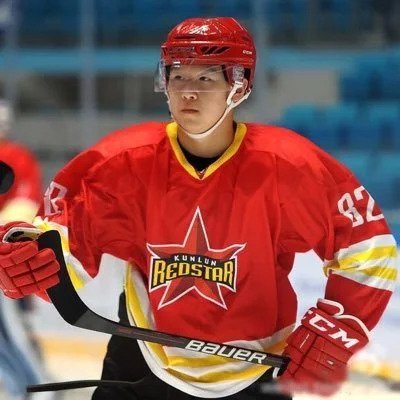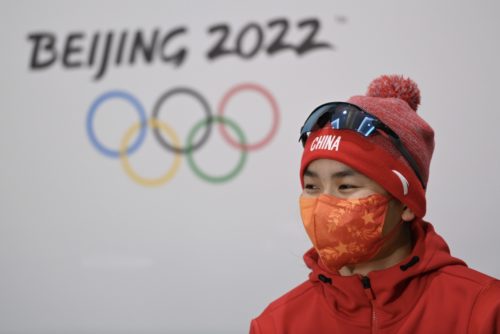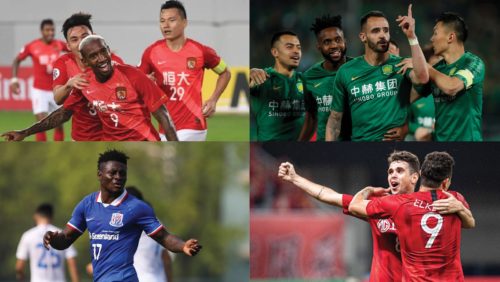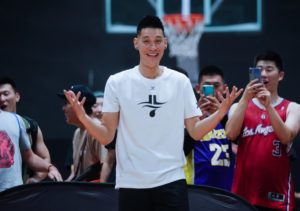‘I don’t think we’re moving in the right direction’: Rudi Ying on Chinese hockey
"The general consensus around Chinese players in the system is that you can complain all you want, but you know nothing's going to change, so what's the point?"

Rudi Ying is one of the young faces of Chinese ice hockey. He was the captain of the Kunlun Red Star in Russia’s KHL, and recently represented China at the Beijing 2022 Winter Olympics. He is also one of the most articulate players in the sport, as anyone who listened to the most recent episode of the China Sports Insider Podcast would know.
But at just 23 years old, Ying is considering hanging up his skates. (He is currently covering from an injury.) “In the past few seasons, I’ve had a pretty pessimistic revelation,” he told us. “Or you could just say it’s a realistic realization, which is that maybe I’m not 100% cut out for the sport.”
In an honest 40-minute conversation, Ying makes several revelations about Chinese hockey, including the mercenary nature of playing professionally in the KHL and the rift between “heritage” and Chinese players on the team in the lead-up to the Olympics. “When we’re going to clubs and getting drunk and stuff, they would say that to my face. They’re like, ‘Oh, I couldn’t make this money anywhere else,'” he says. “In the locker room, you felt there was no real sense of pride.”
We’ve excerpted some of the conversation below, or listen to it here, beginning at the 8:40 mark:
On a rift between heritage and Chinese teammates in Russia
There was a rift between the native guys and the heritage guys over there, because for whatever reason, the [Kunlun Red Star] management seemed to turn a blind eye to a lot of the heritage guys’ stuff, which I understand. But you kind of want equal treatment. We couldn’t leave the hotel, technically — we used to sneak out and stuff, I can say that now — while the heritage guys would just come and go as they pleased, and their families were there and whatever. I couldn’t get family over there, I couldn’t do anything. It was just a very different set of rules.
We talked about it somewhat, but it’s a taboo subject. I feel like that’s the general consensus around Chinese players in the system, is that you can complain all you want, but you know nothing’s going to change, so what’s the point?
I felt like I had an identity crisis, where the Chinese players thought I was heritage player and the heritage guys thought I was Chinese. So I was kind of left alone. I had a couple friends who were in the similar situation, so we bonded over that. But that was always a weird thing for me. From the surface, it looks like it’s a good deal, but in reality, it’s kind of the opposite.
On buying in — or not
I think even among the heritage guys, my views were very split on their attitudes. I’m not going to name any players, but there were some players who spent a fair amount of time in China with Chinese blood and heritage and didn’t bother to learn one word of Chinese. And on the other side of that spectrum, there are players who didn’t have a single ounce of Chinese blood who bought into the system far more than the other ones did, so I have a lot of respect for them.
I would say the general consensus is that nobody bought in, if I’m being honest. For a lot of the players, it felt as if they had no real reason to say no, so they just kind of went along with it. For other players, if I’m being brutally honest, I think it was for money. I have to say that I’m one of those people who made probably way more than I probably should have, but certainly not on the levels that some of these guys were making. When we’re going to clubs and getting drunk and stuff, they would say that to my face. They’re like, “Oh, I couldn’t make this money anywhere else.”
But we all knew that. That was the harsh reality behind it, was that even in the locker room, you felt there was no real sense of pride. I mean, if you’re reconnecting with your roots, you’ve got to at least learn the language a little bit, at least immerse yourself in the culture a little bit. And I didn’t see that at all in the five years that I was with this team.
On joining the KHL
I don’t think, realistically, joining the KHL was the best thing to do for Chinese hockey development in general. I was probably the best player in China in 2016. I would be comfortable saying that. And I know that I may get hate for that, but I think that’s true. And I was nowhere near being able to play in the KHL. So when you set up that team, it’s not a realistic stepping stone. It’s like trying to jump onto the second floor. It’s not possible.
I was saying even back then that we should have had our own league, because we had a lot of funding, a lot of money, because of the Olympics, and it just wasn’t being poured in the right direction. I figured if you set up a league, and then you’re willing to pay higher salaries and players from North America would like to come to China to play, then you would slowly raise the level of Chinese hockey. And then the players inside of that system could gradually take a flight of stairs up to the second floor instead of trying to box jump on the second floor.
But that’s just the way it is. And even this season, not a lot of the Chinese guys got to play, including myself.
Next steps and future hopes
Well, I am going to decide after I recover from this injury. But I’m undecided because of a lot of factors. One is, obviously, I love the sport, and I love playing it. But in the past few seasons, I’ve had a pretty pessimistic revelation — or you could just say it’s a realistic realization — which is that maybe I’m not 100% cut out for the sport. I’ve managed to make it this far, and I’m ever thankful to have been able to make it this far in my career, just based on a combination of skill and persistence and obviously luck and some great mentors along the road. You know, it’s kind of disheartening to come to this realization, because in the past few seasons, I always thought I wasn’t good enough, but I could be better. And I always felt like it could be better. But these past two seasons, I started feeling like maybe this is my limit. And this is my peak. And that’s still not enough for me to comfortably play hockey.
I don’t think they need me as much as they say they need me, and I don’t think I have that much to offer, which I know is brutally honest. But I think if you want to grow as a player, or as a person for that matter, you’ve got to be brutally honest with yourself, at least once in a while. And that’s only one of the reasons I’m considering perhaps switching fields.
The other reason is that I don’t think we’re moving in the right direction. From a personal standpoint, I don’t know where I would play next season. I don’t want to spend another season in Russia playing in the KHL – and perhaps that’s something we really shouldn’t talk about politically with what’s over there right now. China won’t have its own league and, unless you’re paying me seven figures, I don’t want to play in North America, where I’m away from family and everything. No team in their right mind is going to pay me six figures, let alone seven. I don’t think I’m a six-figure player. I think I’m a high-five-figures player. It’s difficult for me to not want to consider retirement. That’s being honest.





